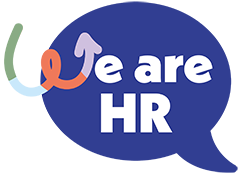The role of the HR professional is a dramatically evolving role over time. At first Human Resources was a department that mainly dealt with keeping records, ensuring companies followed regulations and were in compliance with laws, wages, compensation and other benefits. Due to the advancement of technology, a lot of these tasks are now automated, allowing HR professionals to engage in other tasks, such as employee engagement and strengthening the culture of the workplace. There have also been evolving in the workforce, where 2015 marked the year when millennials were the majority generation. This means businesses have had to adapt to accommodate the needs and preferences of this generation.
Managing the well-being of employees is no small task, but is essential for business. Good employees make the business run well, make a profit and a good employee is most often a happy employee. Today we are talking more and more about mental health and the importance of managing stress, which directly affects the work environment, and as such, the HR professional is intricately linked to the success of the business in managing the workforce. Of course, HR professionals still need to understand the payroll process and employee disputes, but the main tasks have shifted to focus on project management and creating an alignment between HR and the organizational strategies of the business.
The pandemic, with all of its disruptions to the workplace, has also meant that the role of the HR professional has evolved perhaps quicker than it would normally have. The HR departments have had to ensure a mainly remote-working workforce are coping. As mentioned above, the role is shifting more towards strategic thinking and acting as drivers for the evolving role. Being involved in the strategic thinking of the businesses, the HR professional can help in recruiting the best talent, developing their skills and essentially retaining the employees.
As discussed, the well-being of the employees is a key factor to the success of a business, because happy and engaged employees, usually mean they stay. The HR departments evolvement into the strategic sphere means them grappling with these questions; do our employees feel engaged? Are they connected with the vision of the business? Do they feel like they belong? By asking these questions, the HR department is well suited in proposing and implementing initiatives to measure and shape positive answers.
The new role of the HR professional is now more focused on the employee experience, encouraging businesses to consider their employees as their most valuable assets. As demonstrated above, this means that the HR professional should be given a larger seat at the table and be involved in the strategic planning of the business. Managing the employees’ experience is dynamic and exciting, as it is an evolving role. New generations enter the workspace, with their own set of experiences and needs, and it is up to the HR professional to ensure they find their place within the business. This means a job within HR will never become mundane as it is always evolving and adapting to the evolving role needs of our societies.
Considering a career in HR? Why not check out the CIPD courses offered by We-are-HR!
By Natasia Hieber


